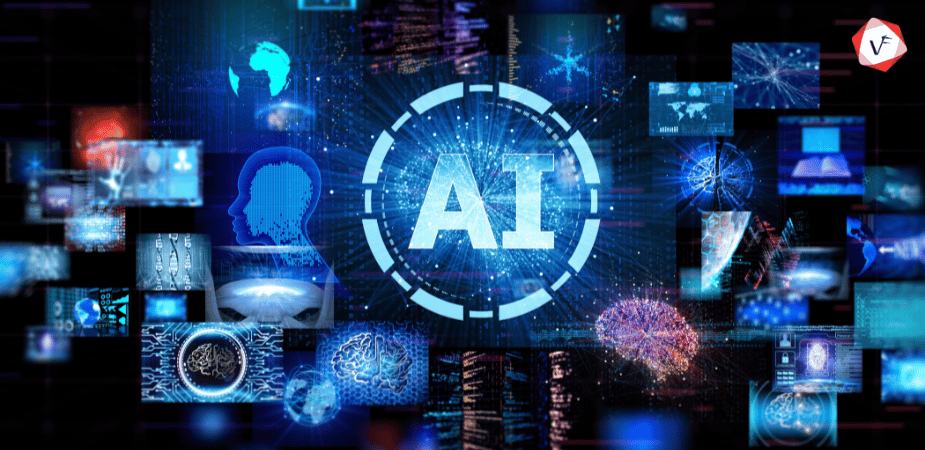Artificial Intelligence (AI) has evolved dramatically over the past few decades, transforming industries, economies, and everyday life. Artificial intelligence is vast and rapidly evolving, encompassing a wide range of technologies and applications. Understanding these different types of AI and their implications is essential for navigating the future of technology. As we enter 2025, it’s essential to understand the different types of AI and how they shape our world. This comprehensive guide will explore the various categories of AI, from narrow to general intelligence, and the latest advancements in the field.
Different Types of Artificial Intelligence
- Narrow AI (Weak AI)
Narrow AI, also known as Weak AI, is designed to perform a specific task with precision and efficiency. Unlike human intelligence, which is versatile and capable of learning various tasks, narrow AI is limited to its predefined functions and cannot operate beyond its programmed scope. Despite its limitations, narrow AI has proven to be incredibly effective in specialized applications where it can outperform humans in speed, accuracy, and consistency. For instance, narrow AI is widely used in image recognition, where it can identify objects in photographs with remarkable accuracy, and in language translation, where it can translate text between languages rapidly and accurately.
Narrow AI operates within a limited context but excels in its specific domain, making it a powerful tool in various industries. In healthcare, narrow AI assists in diagnosing diseases by analyzing medical images and patient data. In finance, it detects fraudulent transactions by identifying unusual patterns in large datasets. In customer service, chatbots powered by narrow AI provide instant responses to customer queries, enhancing the user experience. The focused nature of narrow AI allows it to perform tasks with a high level of proficiency, making it indispensable in numerous fields where specialized knowledge and quick decision-making are required.
- General AI (Strong AI)
General AI, also referred to as Strong AI or Artificial General Intelligence (AGI), is a type of AI that possesses the ability to understand, learn, and apply knowledge across a wide range of tasks, similar to human intelligence. Unlike narrow AI, which is limited to specific tasks, AGI would have the capability to perform any intellectual task that a human can do. This includes reasoning, problem-solving, understanding complex concepts, and adapting to new situations.
Creating AGI involves developing systems that can integrate information from various sources, make autonomous decisions, and exhibit cognitive abilities akin to those of humans. To bridge the gap between narrow AI and true general intelligence, researchers are exploring numerous approaches, such as advanced neural networks, cognitive architectures, and hybrid models.
The development of AGI has the potential to revolutionize industries and society by creating systems that can autonomously perform complex tasks, make strategic decisions, and innovate solutions to problems. In healthcare, AGI could lead to personalized medicine, advanced diagnostics, and new treatment methodologies. In education, it could provide individualized learning experiences and automate administrative tasks, freeing up time for educators to focus on student engagement. In the business sector, AGI could drive innovation, optimize operations, and create new products and services, potentially leading to economic growth and improved quality of life. Despite its current theoretical status, the pursuit of AGI continues to inspire researchers and ignite discussions about the future of artificial intelligence.
- Superintelligent AI
Superintelligent AI, or Artificial Superintelligence (ASI), refers to a level of intelligence that surpasses human intelligence in all aspects, including creativity, problem-solving, and decision-making. ASI would not only perform tasks better than humans but also generate innovative ideas, solve complex problems that are currently beyond human capability, and make decisions with greater accuracy and foresight. This concept of superintelligence includes cognitive abilities far exceeding the brightest and most gifted human minds, extending into realms of profound creativity, advanced strategic thinking, and unparalleled technical skills.
ASI remains speculative, with extensive debates surrounding its feasibility and implications. Scholars and experts are divided on whether it is possible to achieve such a level of intelligence and, if so, how long it might take. The implications of creating a superintelligent AI are vast and profound, involving ethical, social, and existential considerations. Some argue that ASI could bring about unprecedented advancements in science, medicine, and technology, potentially solving global challenges like climate change, disease, and poverty. Others caution about the risks, suggesting that ASI could lead to unintended consequences, including loss of control over intelligent systems, ethical dilemmas, and even existential threats to humanity.
- Reactive Machines
Reactive machines are the most basic type of AI, designed to respond to specific inputs with predefined outputs. These systems do not have memory or the ability to learn from past experiences, operating solely based on present data. Reactive machines are limited in scope but can be highly effective in well-defined environments.
- Limited Memory AI
Limited Memory AI systems can learn from historical data to make decisions and improve over time. This type of AI is widely used in applications that require pattern recognition and prediction. Limited memory AI bridges the gap between reactive machines and more advanced forms of AI, offering a balance of adaptability and performance.
- Theory of Mind AI
Theory of Mind AI aims to understand and simulate human emotions, beliefs, and intentions. This type of AI is still in its early stages, with ongoing research focused on creating systems that can interact with humans in a more natural and intuitive manner. The development of the Theory of Mind AI represents a significant step towards creating AI that can seamlessly integrate into human social interactions.
- Self-Aware AI
Self-aware AI is the most advanced form of AI, possessing a sense of consciousness and self-awareness. This type of AI remains theoretical, with considerable debate about its possibility and ethical implications. The pursuit of self-aware AI raises profound ethical questions about the nature of consciousness, identity, and the rights of artificial beings.
- Machine Learning (ML)
Machine Learning (ML) is a subset of AI focused on developing algorithms that enable computers to learn from data and improve their performance over time without being explicitly programmed. ML has become a cornerstone of modern AI, driving advancements in various fields. Machine Learning is integral to the development of more intelligent and adaptable AI systems.
- Deep Learning (DL)
Deep Learning (DL) is a specialized branch of machine learning that uses neural networks with many layers (hence “deep”) to analyze and interpret complex data. Deep learning has revolutionized fields such as computer vision, natural language processing, and speech recognition. The power of deep learning lies in its ability to automatically extract features from raw data, making it a vital component of modern AI.
- Reinforcement Learning (RL)
Reinforcement Learning (RL) is a type of machine learning where an agent learns to make decisions by interacting with its environment and receiving feedback in the form of rewards or penalties. RL has shown remarkable success in areas such as robotics, gaming, and autonomous systems. Reinforcement learning’s ability to optimize actions based on feedback makes it a powerful tool for developing intelligent, autonomous systems.
- Natural Language Processing (NLP)
Natural Language Processing (NLP) is a field of AI focused on enabling computers to understand, interpret, and generate human language. NLP has become increasingly sophisticated, powering applications such as virtual assistants, chatbots, and language translation services. Advancements in NLP are making human-computer interactions more natural and intuitive.
- Computer Vision
Computer Vision is a field of AI that enables computers to interpret and understand visual information from the world. This technology has applications in areas such as surveillance, healthcare, and autonomous vehicles. Computer vision’s ability to process and analyze visual data is transforming industries and enhancing everyday experiences.
- Robotics
Robotics is an interdisciplinary field that combines AI, engineering, and computer science to create machines that can perform tasks autonomously or semi-autonomously. AI plays a crucial role in enabling robots to perceive, learn, and act in dynamic environments. The integration of AI in robotics is driving innovation and expanding the capabilities of robotic systems.
- Ethical AI
As AI becomes more integrated into our lives, ethical considerations have become increasingly important. Ethical AI focuses on ensuring that AI systems are designed and used in ways that are fair, transparent, and beneficial to society. Promoting ethical AI is essential for building trust and ensuring that AI technologies are used responsibly.
- Explainable AI (XAI)
Explainable AI (XAI) refers to AI systems that provide clear and understandable explanations of their decisions and actions. As AI becomes more complex, the need for transparency and interpretability has grown. Explainable AI is crucial for ensuring that AI systems are transparent, accountable, and aligned with human values.
Final Thoughts
The possibilities of artificial intelligence are limitless, ranging from narrow AI that excels in specific tasks to the aspirational goals of general and superintelligent AI. By staying informed about the different types of artificial intelligence, we can better prepare for the future and make the most of AI’s incredible opportunities. Vofox’s AI/ML development services are a great option for businesses looking to leverage the latest advancements in AI technology. With a focus on innovation, quality, and ethical practices, Vofox’s AI services can help you harness the power of AI to drive your business forward. Call or e-mail us at any time to look at our wide range of AI/ML products and services.





